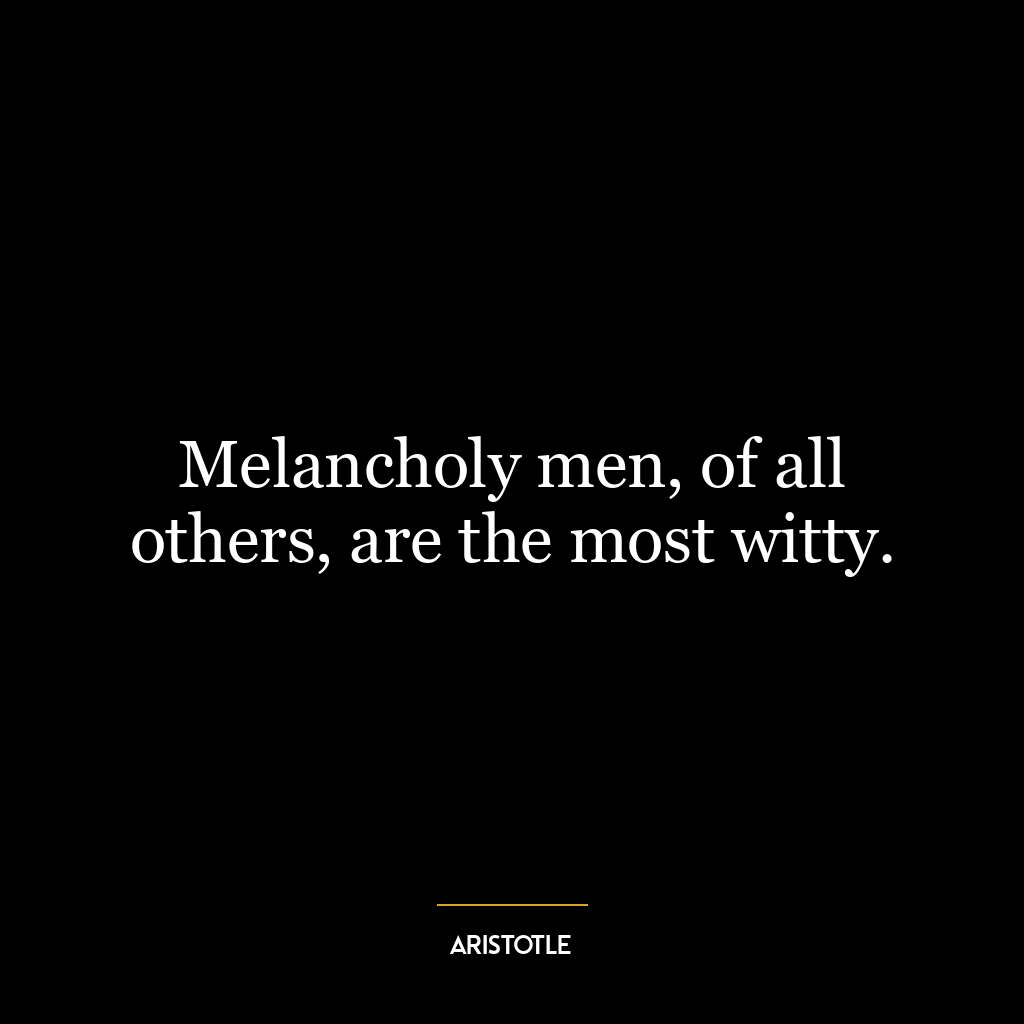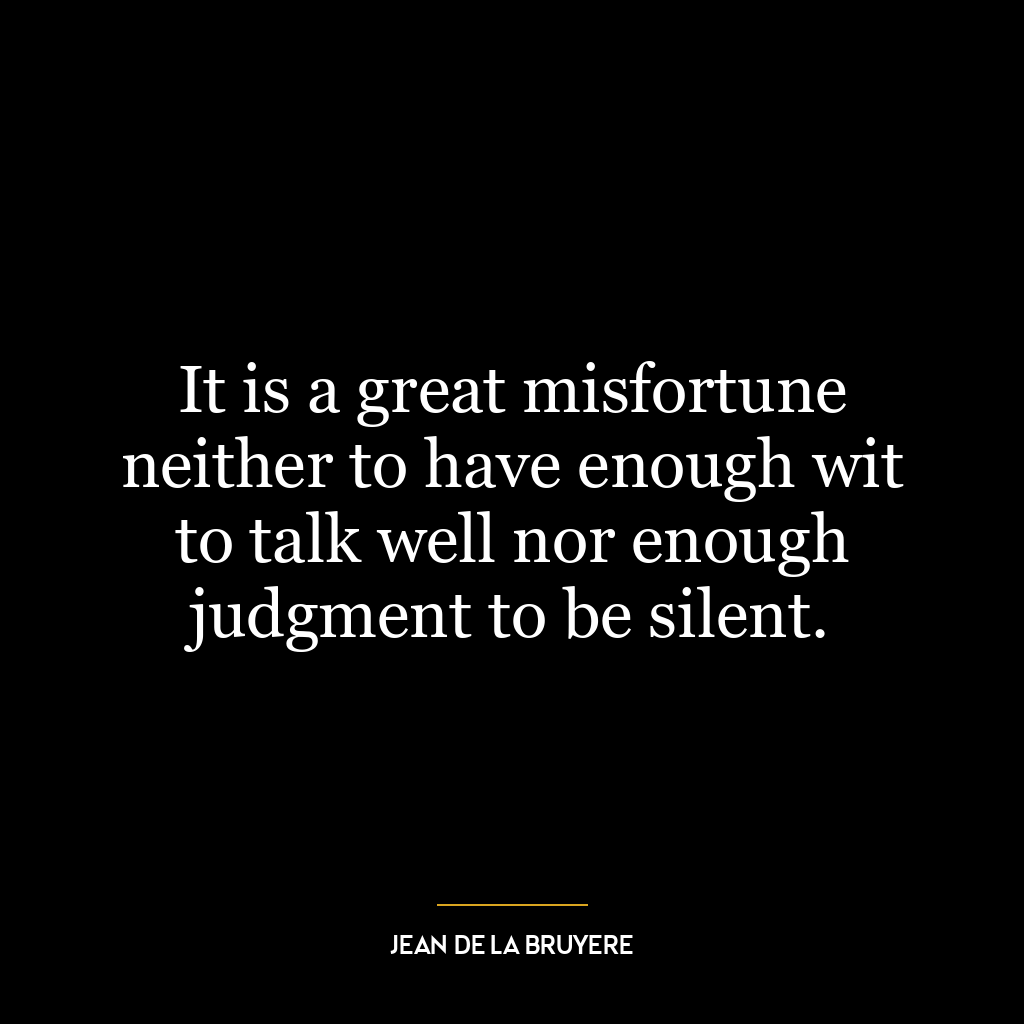This quote suggests that those who are melancholic, or prone to deep thought and introspection, often have the sharpest wit. Wit here does not just mean humor, but also denotes a quick and inventive intellectual capacity. Aristotle seems to imply that melancholy, often associated with sadness or depression, can also lead to a heightened sense of awareness or understanding about the world, which in turn fuels wit.
This idea might be rooted in the belief that pain and hardship can lead to greater wisdom and insight. Melancholic individuals, being more reflective and contemplative, might possess a unique perspective on life that allows them to see things others cannot, hence their wit. They may be able to make connections or observations that others miss, or express truths about the world in a way that is both insightful and clever.
In today’s world, this idea can be seen in many creative fields. Many great artists, writers, and comedians, who are known for their wit and creativity, have struggled with melancholy or depression. Their experiences with these emotional states often inform their work, allowing them to express complex ideas and emotions in a way that resonates with others.
In terms of personal development, this quote can serve as a reminder that all emotional states, including those that are often seen as negative, like melancholy, can have their own value and advantages. It suggests that instead of shying away from such states, one should embrace them, as they can lead to greater wisdom, creativity, and insight. It also underscores the importance of empathy and understanding towards those who might be going through such states, as they are not just struggling, but also potentially growing and developing in significant ways.















